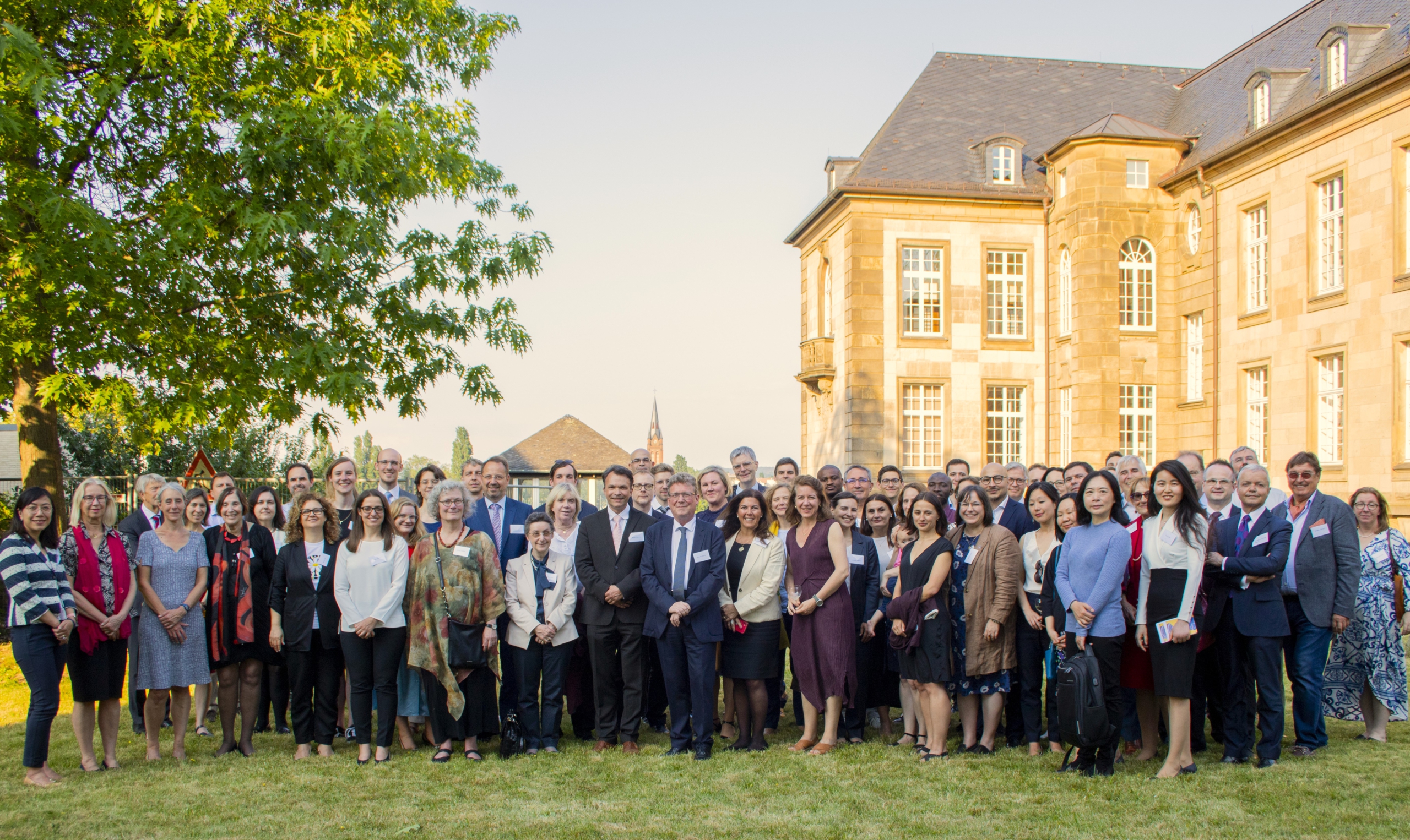Views
The New Saudi Civil Transaction Act and its Potential Impact on Private International Law in Saudi Arabia
The Kingdom of Saudi Arabia (KSA) has recently enacted a new Civil Transactions Law (Royal Decree No. M/199, dated June 16, 2023). The law will enter into force on December 16, 2023, 180 days after its enactment (hereinafter referred to as “the new law”). This law has been rightly described as “groundbreaking” because, prior to the enactment of the new law, there has been no codification of civil law in the Kingdom, and civil law issues have traditionally been governed by the classical rules of Islamic Sharia according to the teachings of the prevailing school of fiqh (religio-legal jurisprudence) in the Kingdom (Hanbali School). Like most of the civil law codifications in the region, the new law focuses mainly on the so-called “patrimonial law,” i.e., property rights and obligations (contractual and non-contractual). Family relations and successions are dealt with in a separate law, which was previously enacted in 2022 and entered into force the same year (Personal Status Act, Royal Decree No. M/73 of 9 March 2022, entered into force on June 18, 2022).
Book Review: The UN Guiding Principles on Business & Human Rights
This book review was written by Begüm Kilimcioglu, PhD researcher, Research Groups Law & Development and Personal Rights & Property Rights, University of Antwerp
Barnali Choudbury, The UN Guiding Principles on Business & Human Rights- A Commentary, Edward Elgar Publishing, 2023
The endorsement of the United Nations Guiding Principles (UNGPs) in 2011 represents a milestone for business and human rights as the principles successfully achieved to put the duties of different actors involved in (possible) human rights abuses on the international agenda. The UNGPs provide a non-binding yet authoritative framework for a three-pillared scheme to identify and contextualize the responsibilities with regard to business and human rights: the State’s responsibility to protect, businesses’ responsibility to respect, and facilitating access to remedy. However, although the impact of the principles can be described as ground-breaking, they have also been criticized for their vague and generic language which provides for a leeway for certain actors to circumvent their responsibilities (see Andreas Rasche & Sandra Waddock, Surya Deva, Florian Wettstein).Therefore, it is important to determine and clarify the content of the principles to increase their efficiency and effectiveness. In this light, this commentary on the UNGPs which examines all the principles one-by-one through the inputs of various prominent scholars, academics, experts and practitioners is indeed a reference guide to when working on corporate social responsibility.
The Visible College of International Lawyers and the HCCH 2019 Judgments Convention – Conference in Bonn
The HCCH 2019 Judgments Convention has been the subject of an ever-growing body of academic research and discussion ever since it was signed; but due to the pandemic, almost all of it had to happen in writing. Just in time for its entry into force, though, and thus perfectly timed, the first international conference on the HCCH 2019 Judgments Convention Cornerstones – Prospects – Outlook took place a week ago at the University of Bonn, hosted by Matthias Weller together with Moritz Brinkmann and Nina Dethloff, in cooperation with the Permanent Bureau of the HCCH, and with the support of the German Federal Ministry of Justice.
The conference brought together much of the aforementioned discussion between a range of academics, practitioners and policymakers, including the contributors to the book of the same title, edited by Matthias Weller, João Ribeiro-Bidaoui, Moritz Brinkmann, and Nina Dethloff, for which the conference doubled as a launch event. It accordingly followed the same structure, organized into seven panels overall that were split into three larger blocks.

The first of those (“Cornerstones”) focused on some of the core concepts underpinning the Convention. Wolfgang Hau (LMU Munich) discussed the meaning of ‘judgments’, ‘recognition’, and ‘enforcement’; Pietro Franzina (Catholic University of Milan) focused on the jurisdictional filters (with an emphasis on contractual obligations, i.e. Art. 5(1)(g)); and Marcos Dotta Salgueiro (University of the Republic of Montevideo) discussed the grounds for refusal. After some lively discussion, the block continued with papers on the Convention’s much-discussed Art. 29 (Cristina Mariottini (Luxembourg)) and on its interplay with the 2005 Choice of Court Convention (Paul Beaumont (University of Stirling)).
News
Third Issue of Journal of Private International Law for 2024
The third issue of the Journal of Private International Law for 2024 features a special issue in honour of Professor Trevor Hartley.
It provides as follows (with other research articles):
Jacco Bomhoff, Uglješa Grušic & Manuel Penades Fons, “Introduction to the special issue in honour of Professor Trevor Hartley”
Jacco Bomhoff, Uglješa Grušic & Manuel Penades Fons, “Professor Trevor C Hartley’s Bibliography”
Jacco Bomhoff, “Law made for man: Trevor Hartley and the making of a “modern approach” in European and private international law”
This article offers an overview and an interpretation of Trevor Hartley’s scholarship in the fields of private international law and EU law. It argues that Hartley’s work, beginning in the mid-1960s and spanning almost six decades, shows striking affinities with two broader outlooks and genres of legal discourse that have roots in this same period. These can be found, firstly, in the approach of senior English judges committed to “internationalising” the conflict of laws in the post-war era; and, secondly, in the so-called “legal process” current of scholarship that was especially influential in American law schools from the late 1950s onwards. Reading Hartley’s writings against these backgrounds can help illuminate, and perhaps to some small extent complicate, two labels he himself has given to his own work: of a “modern approach”, in which “law is made for man, not man for the law”. Read more
ELI Extra-Judicial Administration of Justice Dissemination Conference, 14 Feb, Vienna/Online
For anyone without a date for Valentine’s Day, we are happy to advertise the following ELI event on de-judicialisation in family and succession matters:
With competences in family and succession matters increasingly moving from courts to other authorities – such as notaries, civil status officers, child protection agencies, judicial officers, advocates, and even private parties – ELI’s Extra-Judicial Administration of Justice in Cross-Border Family and Succession Matters project aims at developing an outline of a harmonised European concept of courts, building on the approach of the Court of Justice of the EU in its recent case law, to ensure a harmonised application of EU instruments to such actors in Member States (for more information on the project, click here). As the trend of ‘de-judicialisation’ continues to grow, the project’s Dissemination Conference offers a valuable opportunity to discuss its implications and to present and reflect on recommendations developed by the ELI to address this shift.
The event will take place on 14 February 2025 from 09:00–18:00 CET at the University of Vienna (Small Ceremonial Hall (Kleiner Festsaal)) and will be streamed online.
ELI will be able to issue a certificate of attendance, when requested, to participants.
AMEDIP’s upcoming webinar: From the old to the new Private International Law by HE Amb. Mario J. A. Oyarzábal (30 January 2025 – in Spanish)

The Mexican Academy of Private International and Comparative Law (AMEDIP) is holding a webinar on Thursday 30 January 2025 at 14:30 (Mexico City time – CST), 21:30 (CET time). The topic of the webinar is: From the Old to the New Private International Law: Contexts, Objectives, Methods and Practice and will be presented by HE Ambassador Mario J. A. Oyarzábal (in Spanish). Read more


